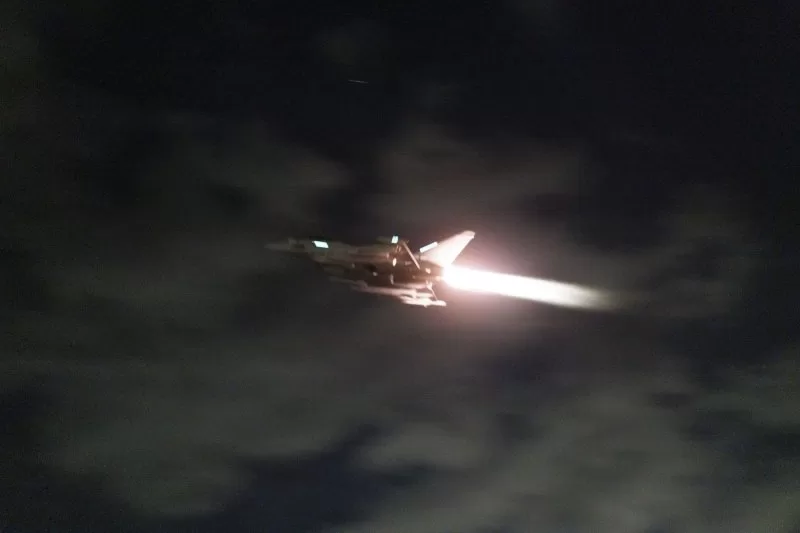Feb. 4 (UPI) — The United States and Britain have launched another round of airstrikes against Houthi-controlled military targets in Yemen, as they seek to degrade the Iran proxy militia’s ability to attack commercial shipping vessels transiting the Red Sea.
The late Saturday strikes — conducted with support from Australia, Bahrain, Canada, Denmark and other democratic allies — came a day after the U.S. military targeted Iran-backed militias in Syria and Iraq and are the latest large-scale response against the Houthis’ Red Sea attacks, raising concerns over the West’s deepening fighting in the Middle East.
On Sunday, U.S. Central Command said it launched a fresh attack hitting anti-ship cruise missiles it said were prepared to be fired at vessels in the Red Sea.
The Saturday strikes, which the countries described in a joint statement as “proportionate and necessary,” hit 36 Houthi targets across 13 locations in Yemen under the rebels’ control. Britain said its forces bombed military targets at three of the locations, hitting a ground control station Houthis used to control drones for both attack and reconnaissance missions.
“These strikes are intended to further disrupt and degrade the capabilities of the Iranian-backed Houthi militia to conduct their reckless and destabilizing attacks against U.S. and international vessels lawfully transiting the Red Sea,” Defense Secretary Lloyd Austin said in a statement.
“This collective action sends a clear message to the Houthis that they will continue to bear further consequences if they do not end their illegal attacks on international shipping and naval vessels.”
Amid Israel’s war against Hamas, another Iran-backed militia, the Houthis have been attacking commercial shipping vessels transiting the Red Sea and the Gulf of Aden, stating it is doing so in solidarity with the Palestinian people.
The rebels have launched more than 30 attacks since mid-November, and some 15 shipping companies have announced the rerouting of their ships to avoid the violence on the important shipping lane that accounts for between 10% and 15% of global trade.
The United States and Britain launched their first joint large-scale airstrikes in Yemen on Jan. 11.
Though intended to degrade the Houthis’ capabilities and deter the militia from further attacks, the Houthis have vowed to stay their belligerent course.
“The U.S.-British coalition’s bombing of a number of Yemeni provinces will not change our position, and we affirm that our military operations against Israel will continue until the crimes of genocide in Gaza are stopped and the siege on its residents is lifted, no matter the sacrifices it costs us,” spokesman Mohammed Al-Bukhaiti said in a statement Sunday.
“The American-British aggression against Yemen will not go unanswered, and we will meet escalation with escalation.”
On Sunday, CENTCOM said its forces conducted a “self-defense” strike at about 5:30 a.m. against four anti-ship Houthi missiles that officials said were prepared to launch at ships in the Red Sea.
“U.S. forces identified the missiles in Houthi-controlled areas of Yemen and determined they presented an imminent threat to U.S. Navy ships and merchant vessels in the region,” its statement said.
“These actions will protect freedom of navigation and make international waters safer and more secure for U.S. Navy vessels and merchant vessels.”
The strike came about 90 minutes after U.S. forces said in a statement that it had conducted a similar strike on a single Houthi anti-ship cruise missile.
